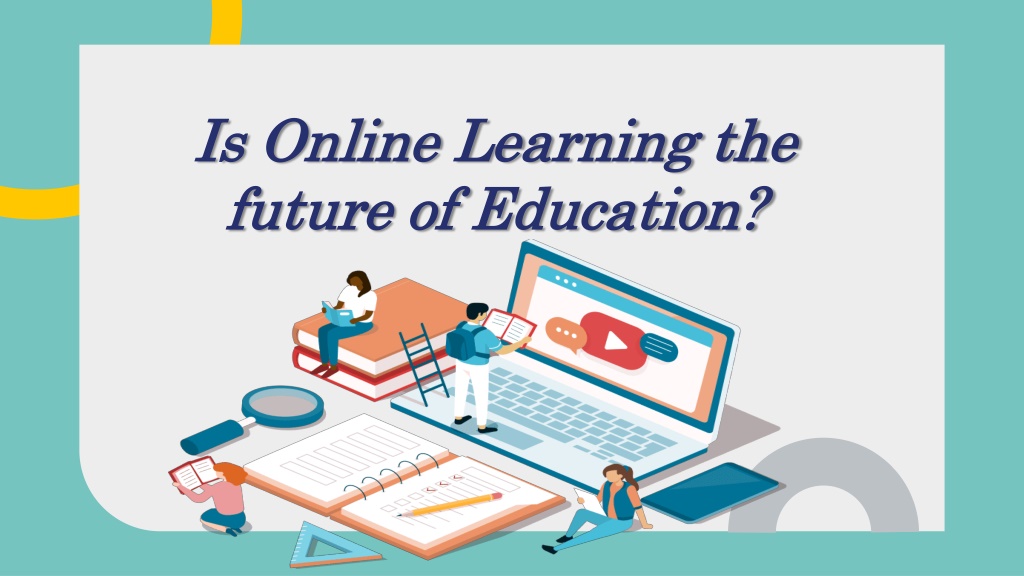Online education is more than just a passing trend—it’s redefining how we approach learning. As technology continues to transform daily life, education is also evolving. From short certificate courses to full degree programs, online learning is becoming more accessible, flexible, and efficient. But in what ways is it shaping the future of education? Let’s explore how it’s impacting the educational landscape and what this means for learners around the world.
The Growth of Online Education
Although online education began decades ago, its recent growth has been tremendous. While distance learning has existed in the form of correspondence courses, the internet in the 1990s paved the way for interactive, dynamic learning. However, the COVID-19 pandemic significantly accelerated this shift, with many schools and universities rapidly transitioning to online platforms. As a result, even traditional educational institutions have incorporated digital tools to keep up with the times.
Flexibility and Accessibility
One of the biggest benefits of online education is its flexibility. Unlike conventional learning, which requires being present at a fixed location and time, online classes can be taken from anywhere, at any time. This has enabled people who were previously unable to study due to work, family responsibilities, or geographical limitations to pursue education.
For example, a mother can attend classes while her children nap, or a full-time employee can study in the evenings. Additionally, online learning allows students to progress at their own pace, letting fast learners move ahead and giving others more time to grasp concepts without pressure.
Affordability of Online Learning
Traditional education is often expensive, but online courses tend to be more affordable. Without the need for physical classrooms, commuting, or on-campus housing, institutions can significantly lower tuition fees. Students also save money by using digital materials instead of costly textbooks. For many, these cost savings make higher education possible.
This cost-efficiency also benefits educational providers. Without needing extensive physical infrastructure, they can focus more on enhancing technology and reaching a broader audience globally.
Personalized Learning Experiences
Online education offers a level of personalization that traditional classrooms can rarely provide. Using adaptive learning technologies, courses can be tailored to fit each student’s needs. For instance, if a student excels in one area but struggles in another, the online platform can adjust the learning path accordingly.
This customized approach enhances learning efficiency and keeps students more engaged, ultimately boosting their chances of success.
Variety of Courses and Programs
The variety of online courses is vast. From brief certificate programs to comprehensive degrees, there’s something for everyone. Whether your interests lie in programming, digital marketing, or even niche subjects like underwater photography, chances are there’s an online course available.
Platforms such as Coursera, edX, and Udemy offer free or low-cost courses from prestigious institutions, democratizing education and making it accessible to anyone with an internet connection.
Interactive and Engaging Learning Tools
Today, online education is far from boring. Modern platforms use tools like videos, interactive quizzes, and gamification to create engaging learning experiences. Virtual classrooms allow students to participate in discussions, group activities, and live tutoring sessions, making it just as interactive as traditional education.
This is particularly useful in fields that require hands-on practice, like science and engineering, where virtual simulations and labs are used to teach complex skills.
Global Collaboration and Networking
Online education enables students to connect and collaborate with peers worldwide, something that’s difficult in traditional classrooms. These interactions expose students to different perspectives, enriching their learning experience.
Many platforms offer networking opportunities through discussion forums and group projects, which can lead to valuable professional connections.
Building Skills for the Digital Era
As technology advances, the demand for digital skills continues to rise. Online education is well-suited to meet this need by offering courses in fields like artificial intelligence (AI), data science, and blockchain. These areas are developing so quickly that traditional institutions often struggle to keep up, while online platforms adapt more readily.
Online courses also focus on practical, job-ready skills, making them ideal for those looking to enhance their careers.
Promoting Self-Discipline and Responsibility
Online education requires students to be self-disciplined and proactive, as there is no physical classroom structure to guide them. This fosters strong time management and self-motivation skills, which are valuable beyond the classroom.
While it can be challenging, successfully managing online studies develops crucial life skills that benefit students in any career.
Challenges of Online Education
Despite its benefits, online education has its drawbacks. The lack of in-person interaction can make it difficult to form meaningful connections with teachers and classmates. Moreover, not everyone has access to high-speed internet or the necessary technology, especially in underdeveloped regions, which can exacerbate educational inequalities.
There’s also the issue of acceptance. While many online degrees are gaining recognition, some employers still prefer traditional qualifications. However, this perception is changing as online education becomes more mainstream.
Hybrid Learning: The Future of Education
A promising development is hybrid or blended learning, which combines the flexibility of online education with the benefits of face-to-face instruction. Students may attend in-person sessions for practical activities while completing theoretical coursework online. This approach offers the best of both worlds and is gaining popularity in schools and universities.
Impact on Traditional Educational Systems
The rise of online education has pushed traditional institutions to innovate. Many universities now offer online courses and are incorporating more technology into their teaching methods. Teachers are becoming facilitators, guiding students through interactive learning experiences rather than simply lecturing.
This shift is beneficial for the entire educational system, making learning more engaging and effective.
The Future of Online Education
Looking ahead, online education will continue to evolve. Emerging technologies like virtual reality (VR), augmented reality (AR), and AI will further enhance the online learning experience. Imagine attending a virtual history class set in ancient Rome or performing a simulated surgery from home!
As the job market changes rapidly, lifelong learning will be essential, and online education will be crucial in helping people continually upgrade their skills.
Conclusion
Online education is transforming the future of learning. With its flexibility, affordability, and personalized approach, it’s clear that online learning is here to stay. While challenges remain, its benefits far outweigh its drawbacks. As technology advances, so will education, making learning more inclusive, engaging, and accessible for everyone.





